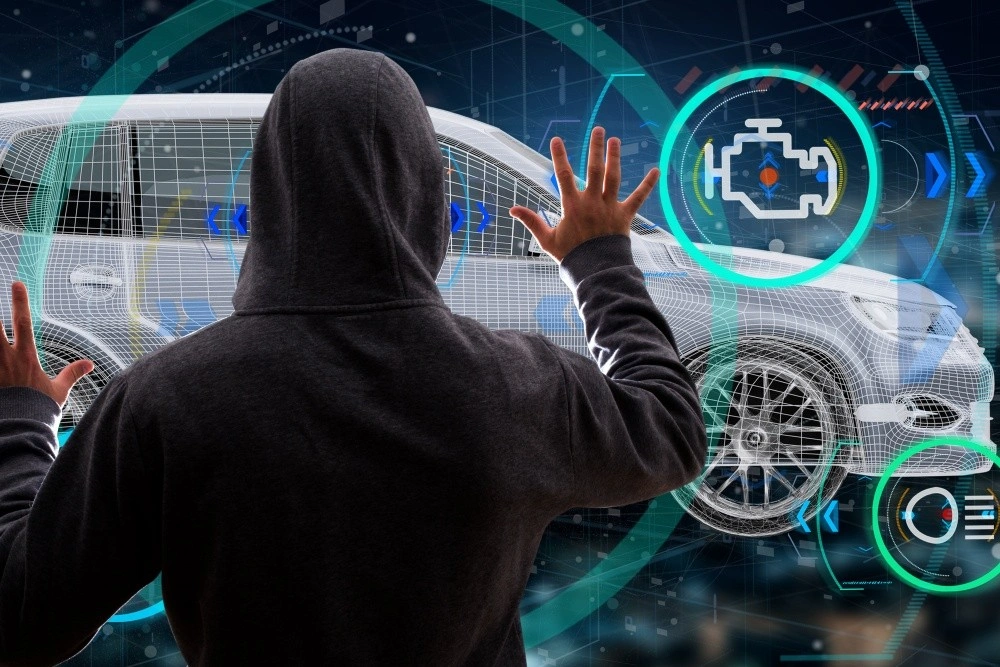The automotive industry is experiencing a digital revolution, and blockchain technology is emerging as a key player in this transformation. While often associated with cryptocurrency, blockchain offers far more than just digital coins—it provides a decentralized, secure, and transparent way to record and share data.
In 2025, forward-thinking automakers, suppliers, and service providers are using blockchain to improve vehicle safety, supply chain visibility, fraud prevention, and even consumer trust.
Let’s explore how blockchain is enhancing security and transparency across the automotive landscape.
🔐 What Is Blockchain, and Why Does It Matter for Automotive?

At its core, blockchain is a digital ledger that stores data across a network of computers in a way that’s secure, tamper-proof, and traceable. Every transaction or change is time-stamped and recorded permanently.
For the automotive industry, this means:
- Trustworthy records of vehicle history, repairs, and ownership
- Improved cybersecurity for connected vehicles
- Transparent supply chains from parts sourcing to final delivery
- Smart contracts for insurance, leasing, and service agreements
It’s a win for manufacturers, consumers, insurers, and regulators alike.
🛠 1. Supply Chain Transparency and Traceability
Modern vehicles are built with thousands of parts from multiple suppliers. Tracking these components through a global supply chain is complex and often opaque.
With blockchain:
- Every part can be digitally tracked from production to installation
- Data on materials, origin, certifications, and conditions is permanently stored
- Counterfeit parts can be identified and removed before reaching the market
This boosts accountability, efficiency, and quality assurance.
📉 2. Reducing Vehicle Fraud and Odometer Tampering
One of the biggest pain points for car buyers—especially in the used market—is fraudulent vehicle history.
Blockchain makes it possible to:
- Record and lock mileage data, accident reports, service history, and ownership changes
- Ensure all records are immutable and verifiable
- Give buyers confidence in what they’re purchasing
This transparency builds consumer trust and protects vehicle value.
🧾 3. Smart Contracts for Leasing, Insurance, and Car Sharing
Smart contracts are blockchain-powered agreements that automatically execute when conditions are met. In automotive, they can simplify:
- Car leasing and finance agreements
- Usage-based insurance policies
- Peer-to-peer car sharing and rentals
Everything is handled digitally, reducing paperwork, human error, and fraud.
🚗 4. Cybersecurity for Connected and Autonomous Vehicles

As vehicles become more connected to the internet, they become vulnerable to hacking and data breaches.
Blockchain enhances cybersecurity by:
- Creating decentralized data storage, reducing single points of failure
- Enabling secure communication between vehicles and infrastructure
- Authenticating software updates and preventing malicious tampering
It’s like adding a digital immune system to every smart car.
🔍 5. Digital Vehicle Passports and Maintenance Records
Imagine having a digital passport for your car—an unchangeable record of its life, from production to resale.
Blockchain enables:
- Complete, verified maintenance and repair logs
- Transferable ownership records
- Easier resale with proven vehicle history
This could revolutionize how we buy, sell, and value cars, especially across borders.
🌱 6. Supporting Sustainability and Ethical Sourcing
With growing pressure to go green, automakers can use blockchain to verify:
- Eco-friendly manufacturing practices
- Ethical sourcing of raw materials, like cobalt or lithium
- Carbon footprint tracking throughout the supply chain
This builds brand credibility and supports corporate ESG goals.
🚀 Real-World Use Cases (2025 and Beyond)
Several companies are already adopting blockchain in automotive:
- BMW uses blockchain for verifying ethical sourcing of materials
- Ford tracks EV battery supply chains for transparency
- Mercedes-Benz uses blockchain to audit CO₂ emissions
- Toyota explores blockchain for mobility and usage-based insurance
The momentum is growing, and 2025 is proving to be a turning point.
Final Thoughts: The Road Ahead with Blockchain
Blockchain is more than a tech trend—it’s a strategic tool for transforming the automotive industry. By enhancing security, trust, and transparency, it’s solving real-world problems and paving the way for a smarter, safer, and more connected mobility future.
As cars become data-driven machines, blockchain ensures that data remains protected, accurate, and accessible—for manufacturers, service providers, and drivers alike.
Want to future-proof your automotive business?
Understanding and integrating blockchain might be your smartest move in 2025.

